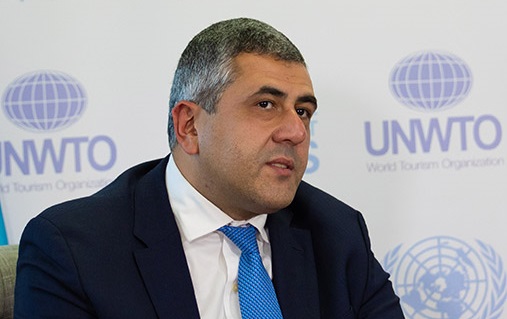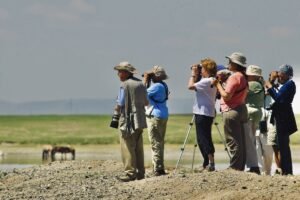Tourism and Digitalization in the Decade of Action

By Zurab Pololikashvili —
By adopting the 2030 Agenda and its Sustainable Development Goals, the Member States of the United Nations pledged to “leave no one behind” in the journey to build a better world. Moreover, the Agenda also emphasises the importance of “reaching the furthest behind first”.
Ever since mankind first started travelling for leisure, tourism has been a source of employment and of economic opportunity. The sector has grown to support many millions of livelihoods worldwide and to become a pillar of both local and national economies.
However, it is only with the embracing of digitalization can we ensure that the economic and social benefits tourism brings are felt as widely as possible – reaching those “furthest behind first”, including women, youth and those living in rural and marginalised communities.
The digital transformation of tourism disrupts the sector and democratizes the opportunities it makes available. Digitalization, for example, offers a route into the workforce for women living outside of major cities, providing many with economic independence and empowerment for the first time.
Through UNWTO’s Tourism Start-Up competitions, we have seen the strong interest in disrupting the sector and making it fairer, stronger more sustainable, most notably among entrepreneurs and innovators from countries in the developing world.
Similarly, we have seen through the UNTWO Tourism Online Academy, that providing online training enables many to either find jobs in the tourism sector or else further their careers, again providing opportunities for those who may otherwise have been left behind as the workplace continues to evolve.
The COVID-19 pandemic that temporarily brought world tourism to a standstill didn’t just highlight the importance of embracing digital transformation to grow back stronger and better.
It also emphasised both tourism’s importance to the global sustainability agenda and the importance of adopting a collaborative approach to achieving the SDGs. Tourism is the ultimate cross-cutting sector. It affects almost every part of our societies and can, therefore, contribute to the missions of several of UNWTO’s fellow UN agencies.
This crisis has brought the power of tourism to the fore, and UNWTO has been part of the wider UN response to this unprecedented challenge. Digitization has been a key part of this heightened cooperation and, as we move forward together during the Decade of Action, digitization can help ensure more effective collaboration between agencies with different focuses’, but with the same ultimate goals.
Again, just as tourism touches upon almost every section of society, so too can it contribute to most, if not all, of the 17 Sustainable Development Goals (SDGs). Digital cooperation can ensure more effective collaboration across the whole of the UN system, maximizing tourism’s potential, filling gaps and avoiding overlaps. Since we are now into the Decade of Action, the countdown to achieving the SDGs, the efficient use of resources, tourism included, is more important than ever.
Furthermore, entrepreneurship becomes the key ally to accelerate our pace towards sustainable development and UNWTO has launched its SDGs Global Startup Competition to reach out to the most disruptive solutions for each of our common goals.
We invite you to join us in this journey by taking advantage of the tourism4sdgs.org platform which can promote stakeholders initiatives for recovery, and brings attention to tourism’s contribution to the SDGs and brings together multi-stakeholders for achieving these objectives.
The Dialogue on the Role of Digitalization, spearheaded by UNGIS and drawing on the expertise and abilities of every part of the UN, will help guarantee such efficiency, and UNWTO looks forward to ensuring tourism is part of the conversation and part of the solution as we build towards 2030.
Image : Zurab Pololikashvili, Secretary-General of the UN World Tourism Organization / UNWTO
Dec 8 ,2020














